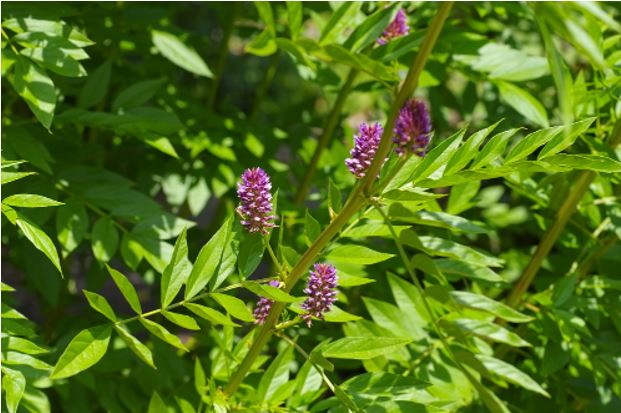Liquorice – Wide-Ranging Effects on Adrenal Hormones
InterClinical eNews March 2018, Issue 78

With the increasing incidence of adrenal fatigue in the general population, we felt it was timely to take a look at an adrenal-sparing herb. In this month’s issue, we investigate the diverse effects of liquorice on adrenal hormones.
Liquorice
has been acknowledged for its ability to raise cortisol and researchers at the
Queen’s Medical Research Institute in Edinburgh sought to examine the broader
range of its effects on adrenal hormones.
In a pilot crossover study examining liquorice’s effect on adrenal steroidogenic
hormones, 20 healthy volunteers (10 F/10 M, average age 23), were given 100g of
3% liquorice confectionery for a week, a 3-day washout period, then a week on a
daily 100g carbohydrate and sugar-matched placebo confectionery. Salivary
hormone levels were tested at baseline at three-time points during the day
(waking, mid-morning and evening).
The results showed short-term liquorice consumption at 3g per day, induced
significant increases in free cortisol P < 0.01, but also in other adrenal
hormones including: free DHEA P <0.001, free testosterone P <
0.05 and free deoxycorticosterone P < 0.02, whilst significantly lowering
free cortisone P < 0.01 and free aldosterone P < 0.02.
Liquorice also significantly increased conjugated DHEA at P
< 0.03 and conjugated deoxycorticosterone P < 0.01. They also noted it
did not raise blood pressure at this dose in this normotensive cohort,
confirming other studies.(2)The mechanism(s) by which liquorice affects these
changes is unclear but liquorice appears to act directly to inhibit the
activity of the enzyme SULT2A1.
The researchers concurrently studied in vitro human adrenal cell lines to
assess whether glycyrrhetinic acid (an active component of liquorice) affects
steroidogenesis via changes to the expression of the enzyme SUKLT2A which
sulphonates three adrenal hormones ( pregnenolone, DHEA , 17
Hydroxypregnenolone and deoxycorticosterone), They used
adrenocortical H295 cells and the results confirmed that glycyrrhetinic
acid did affect the inhibition of cortisol to cortisone via the inhibition
of the enzyme (11B-hydroxysteroid dehydrogenase Type II) production but
hormonal changes were not associated with changes in SUKLT2A1
mRNA expression suggesting that liquorice active components may act directly
on the enzymes themselves.
Summary: Taken as a whole, this
preliminary research suggests that liquorice acts to improve adrenal function
by prolonging cortisol levels through enzyme inhibition, but the in vitro
research points to a role in improving several other important adrenal
hormones.
Reference
- Al-Dujaili EA, Kenyon CJ, Nicol MR, Mason JI. Liquorice and glycyrrhetinic acid increase DHEA and deoxycorticosterone levels in vivo and in vitro by inhibiting adrenal SULT2A1 activity. Molecular and cellular endocrinology. 2011 Apr 10;336(1-2):102-9.
- Sigurjonsdottir HA, Manhem K, Axelson M, Wallerstedt S. Subjects with essential hypertension are more sensitive to the inhibition of 11 β-HSD by liquorice. Journal of human hypertension. 2003 Feb;17(2):125.
Copyright InterClinical Laboratories 2018, 2020

No Comments
Sorry, the comment form is closed at this time.